GitHub Alternatives (Free, Paid, Self-Hosted)
The trending news of yesterday was the acquisition of GitHub (the world’s leading software development platform) by Microsoft. This is a great deal for Microsoft which might put it in the position it was about 10 years ago in the software market. But a lot of open-source fans are unhappy with this.
A couple of years ago Microsoft was anti-open-source.

“Open source is an intellectual-property destroyer. I can’t imagine something that could be worse than this for the software business and the intellectual-property business.” - Jim Allchin (Former Windows chief), 2001

“Linux is a cancer that attaches itself in an intellectual property sense to everything it touches.” - Steve Ballmer (Former CEO)
However, in recent years Microsoft has tried hard to catch up with the open-source world. They are promoting themselves as a supporter of open-source. They have open-sourced some of their projects and also joined The Linux Foundation as a platinum member.
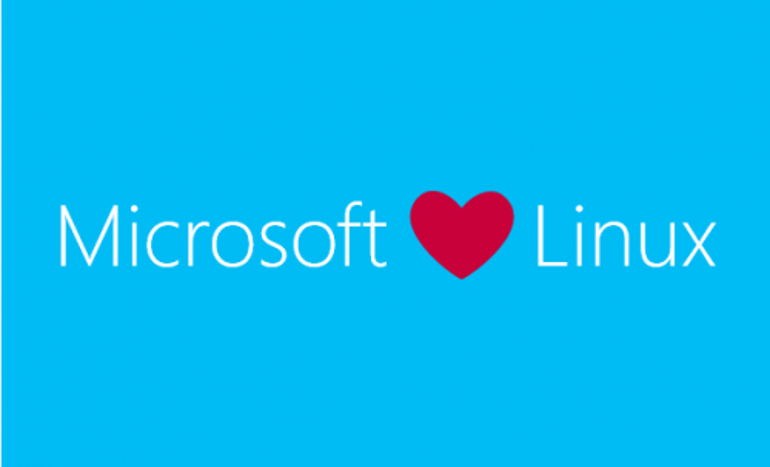
Nobody knows whether they are doing this because they accepted that open-source is good or they are just trying to stay in the business by getting the attention of open-source users. Surely there are trust issues. Some GitHub users have already started looking for alternatives.
Below is a list of some popular services similar to GitHub:
1. GitLab
Most of the users on Social Media seem to be choosing GitLab as a replacement for GitHub.

Features:
- Issue board, Issue tracker (with due dates)
- Built-in CI/CD
- Unlimited private repositories
- Faster file search
- Cherry pick changes
- File locking
- Web IDE
- Wiki for project
- Ad free
- Code review and comments are supported in pull requests
- Static/Dynamic Application Security Testing, Docker container scanning
- Smart Mirroring for faster clone, fetch, pull (Premium)
- Host static websites

GitLab statistics shows that a lot of repos have been imported from GitHub in past few hours.
2. BitBucket
An Atlassian product which is the most popular alternative to GitHub.
Features:
- Unlimited private repositories
- JIRA integration
- 2 factor authentication
- LFS support
- Source code search
- Wiki for project
- Issue tracker
- Ad free
- Code review and comments are supported in pull requests
- BitBucket cloud for hosting static websites (similar to GitHub pages)
- Smart Mirroring for faster clone, fetch, pull (Premium)
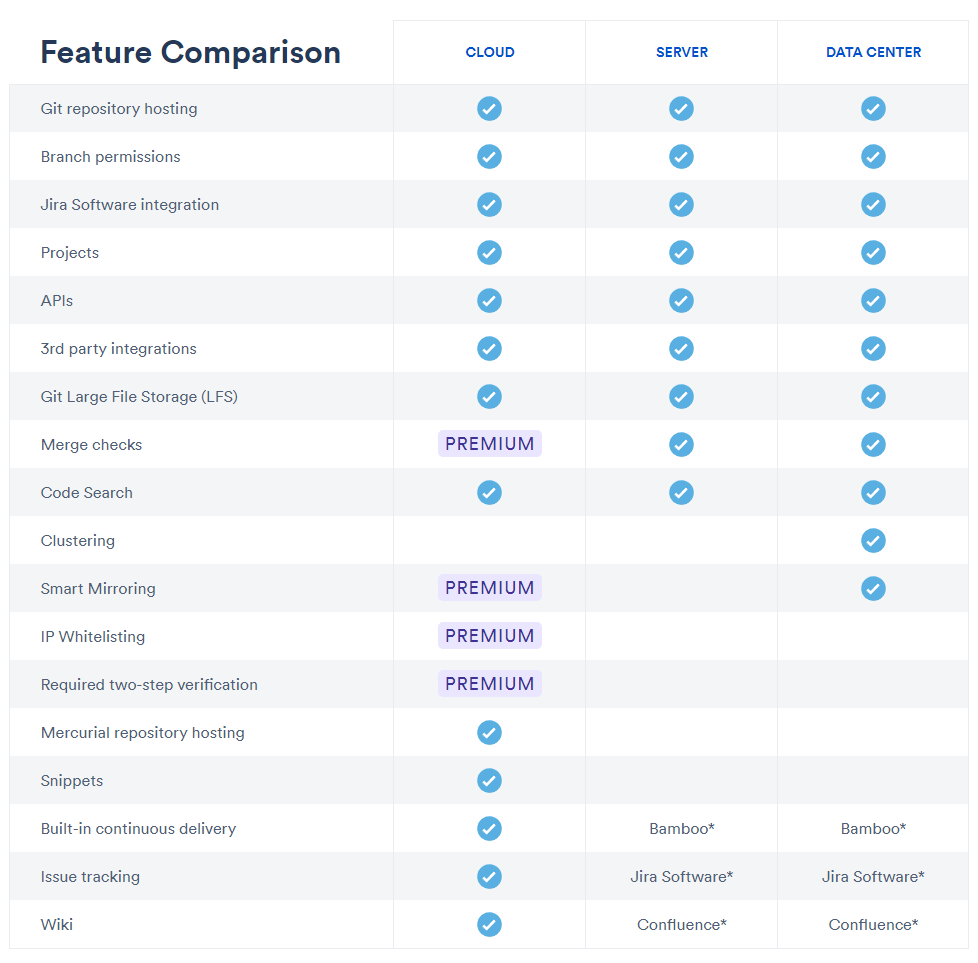
Pricing:

Bitbucket Data Center vs GitHub Enterprise

3. Gitea
A lightweight GitHub clone (forked from GoGs) written in Go lang.
Features:
- GitHub clone
- Runs on Windows, Mac and Linux
- Lightweight (Even supports Raspberry Pi)
- Install from binary
- Ship with docker, vagrant or as a package
- Repo viewer
- Issue tracker
- Wiki
- API support
- Help (Support Forum and Chat)
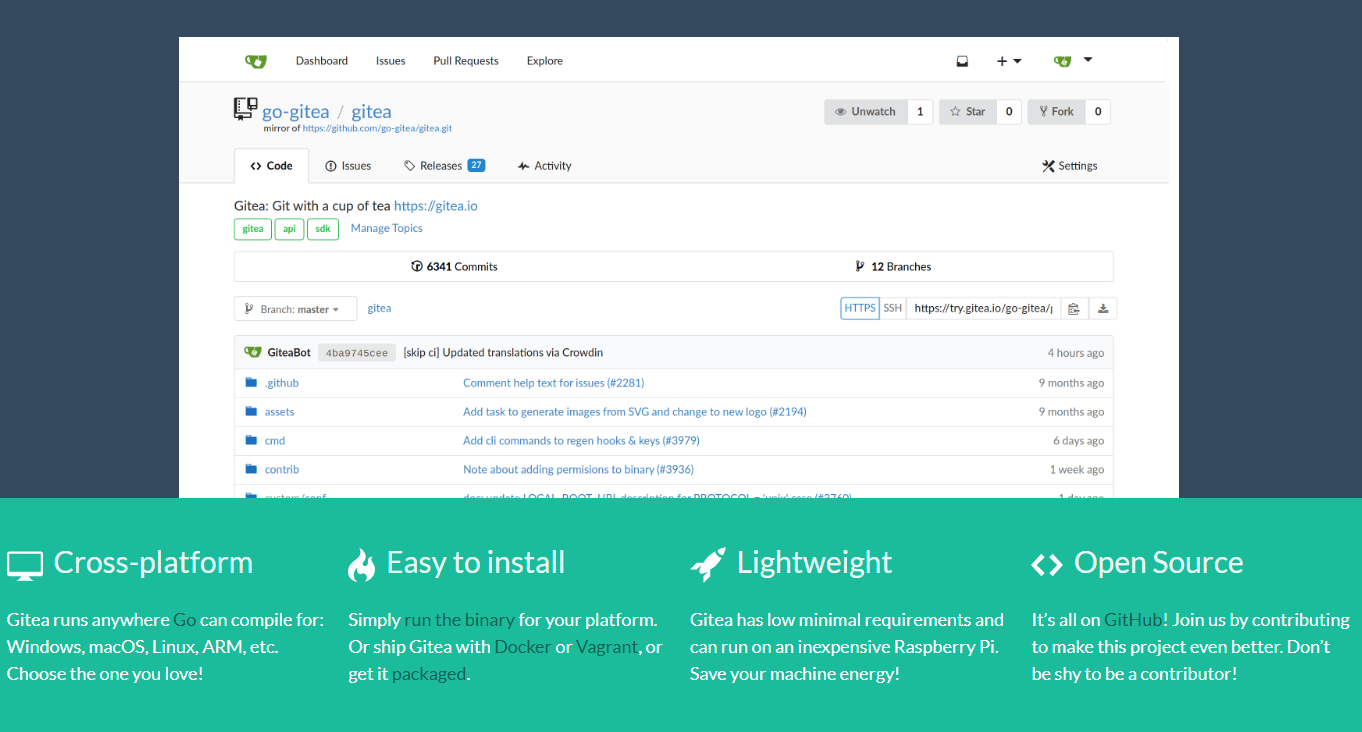
4. SourceForge
One of the oldest (since 1999) to offer free services to open source projects.
Features:
- Issue tracking
- Code hosting
- Mirroing
- Wiki
- Mailing lists
- Support forums
- User reviews on projects
- Micro-blog for project
- Unlimited bandwidth
- Download statistics
- Tool to import GitHub projects
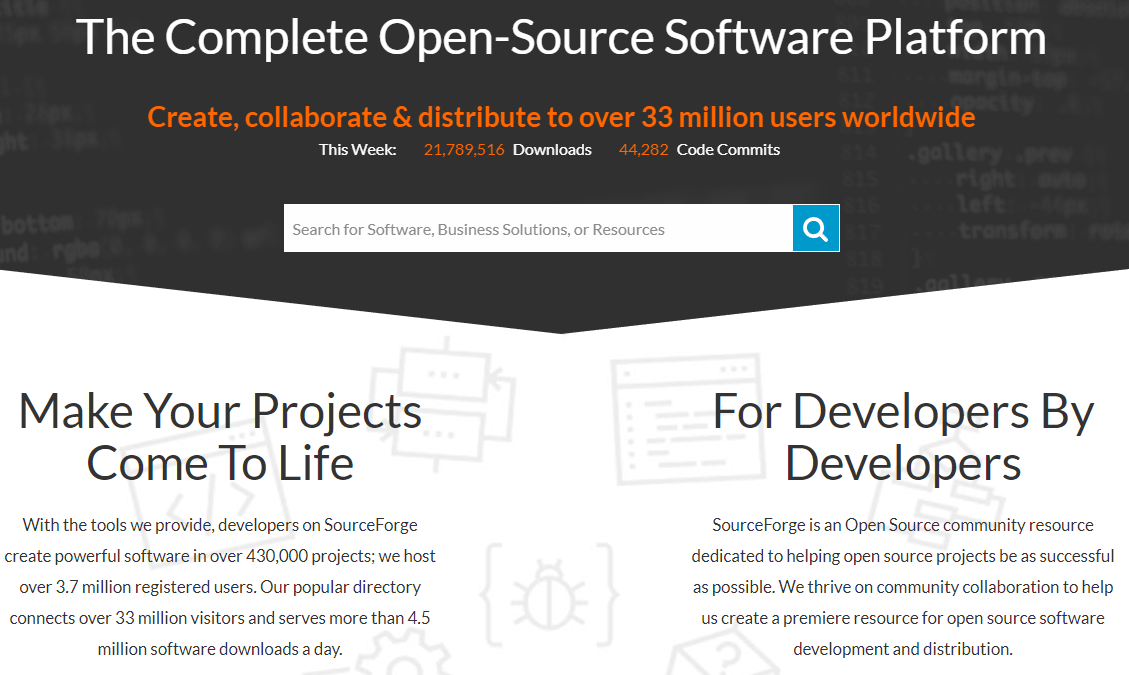
5. Launchpad
A Canonical product, which is quite famous for hosting Ubuntu projects.
Features:
- Issue tracking
- Code hosting (supports both Git and Bazaar)
- Code reviews
- Build and host Ubuntu projects
- Mailing lists
- Translations
- FAQs
- Specification tracking
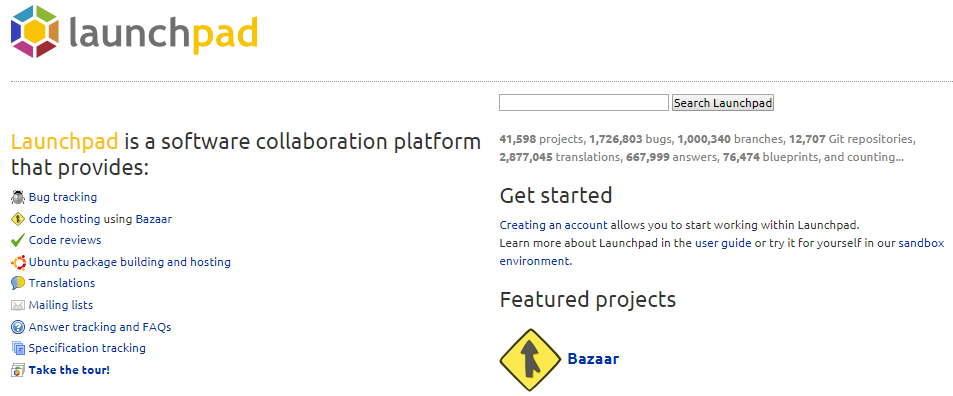
6. Cloud Source Repositories (Paid)
A Google product which is a part of Google Cloud.
Features:
- Connect your repo from BitBucket or GitHub
- Source code browser
- Debug and error reporting tools
- Stable and easily scalable infrastructure
- CI through Container Builder
- Preinstalled tools (Programming languages, Cloud shell, and Shell Editor)
- Faster deployment through App Engine
- Deployment through custom triggers (HTTP, Pub/Sub etc.)
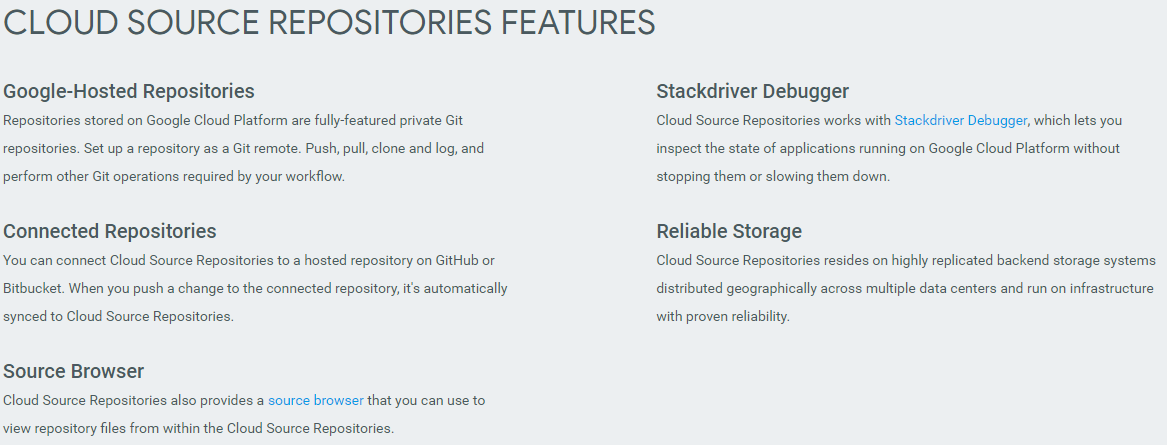
Pricing:

7. AWS CodeCommit (Paid)
An Amazon product which is similar to Cloud Source Repo, if you already have an AWS account you get it for free (Maximum 5 users allowed per month).
Features:
- Hosted on AWS
- Encrypted repositories
- Code review and comments are supported in pull requests
- Scalable
- No limit on size or type of data
- Easy migration from other services
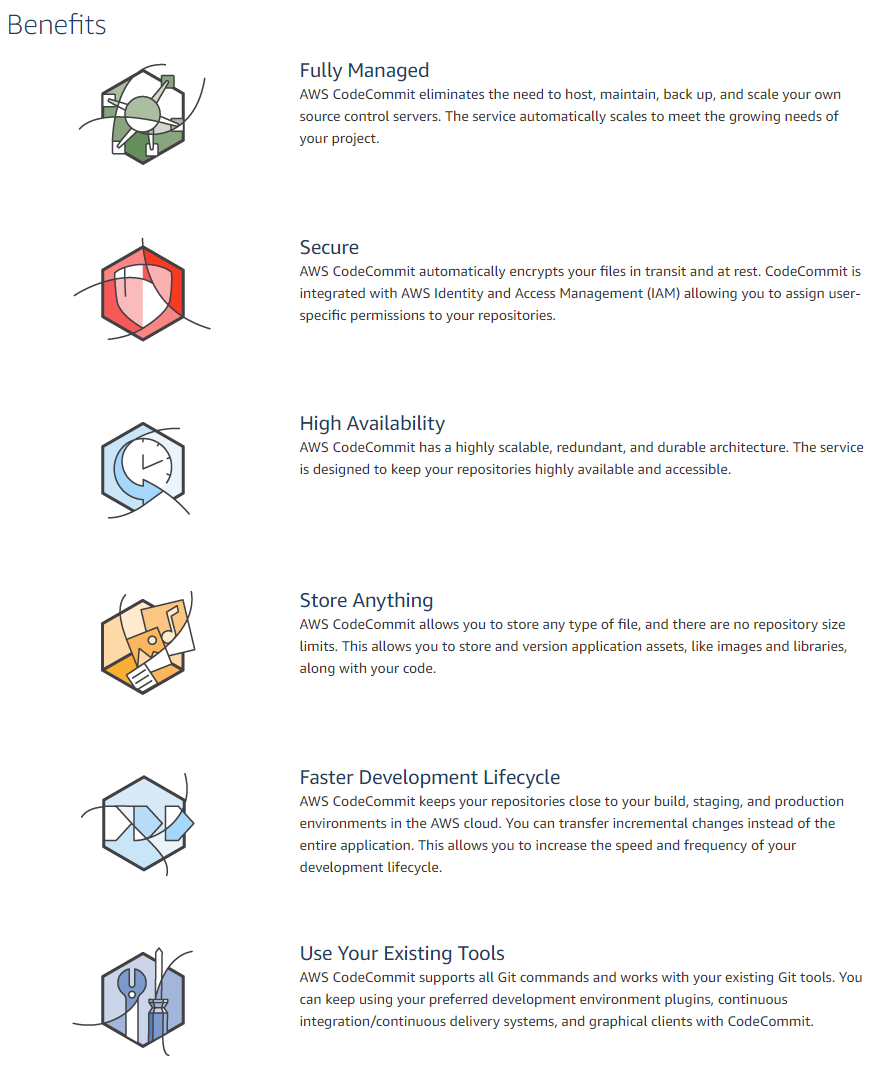
Pricing:
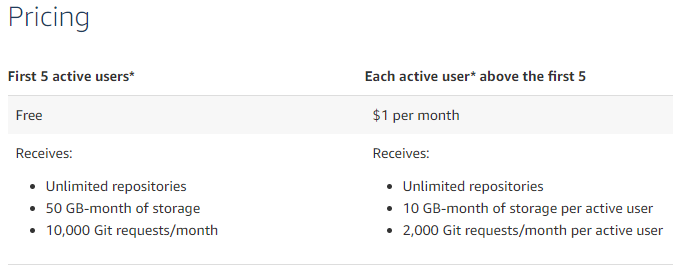
8. Phabricator (Self-hosted)
Features:
- Source code hosting
- Git, Mercurial, SVN support
- Code review and auditing
- Wiki
- Issue tracker
- Workboard
- Chat channel
- Command line tools (lint, unit-tests)
- API support
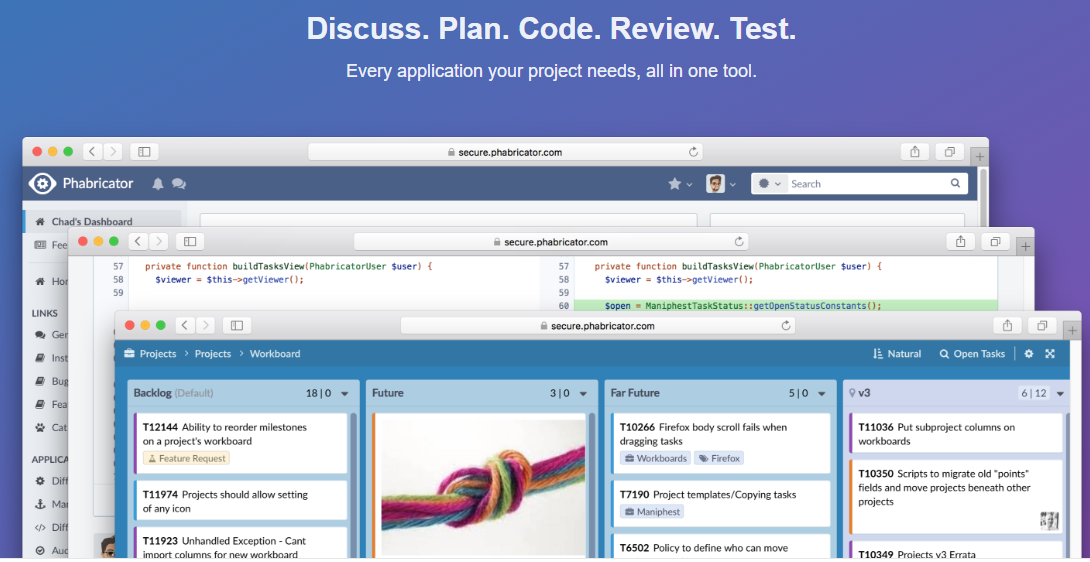
Pricing:

9. GitBucket (Self-hosted)
A git platform on JVM.
Features:
- Powered with Scala
- Highly scalable
- GitHub API compatible
- Repo viewer
- Issue tracker
- Wiki
- Plugin support
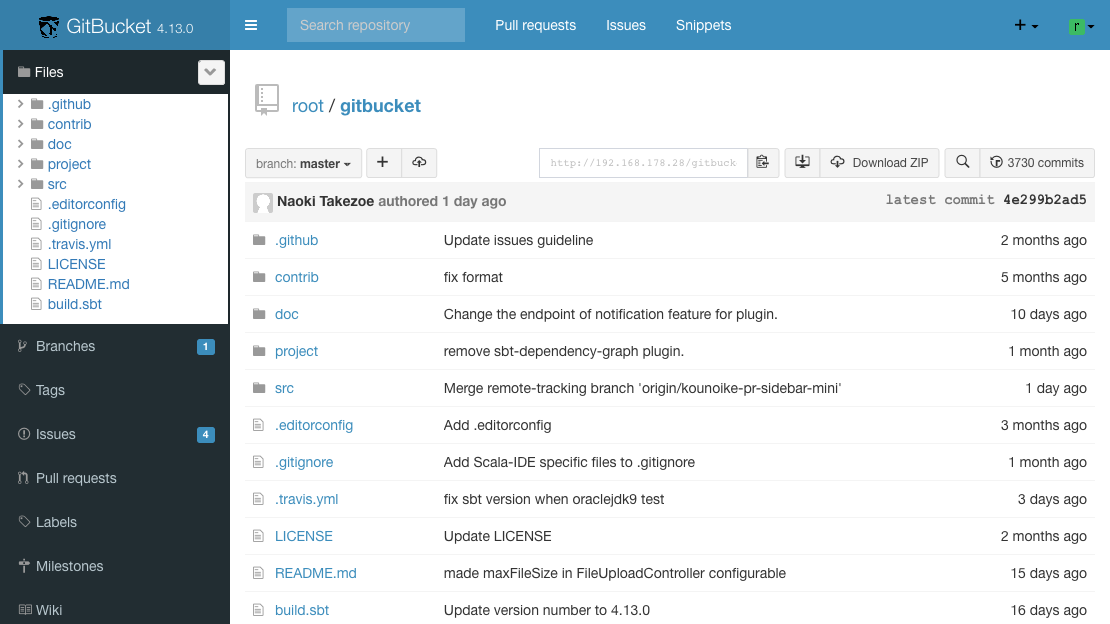
10. GoGs (Self-hosted)
An easy to install and lightweight GitHub clone written in Go.
Features:
- GitHub clone
- Install from binary
- Ship with docker, vagrant or as a package
- Cross platform support
- Lightweight (runs on Raspberry Pi)
- Repo viewer
- Issue tracker
- Wiki
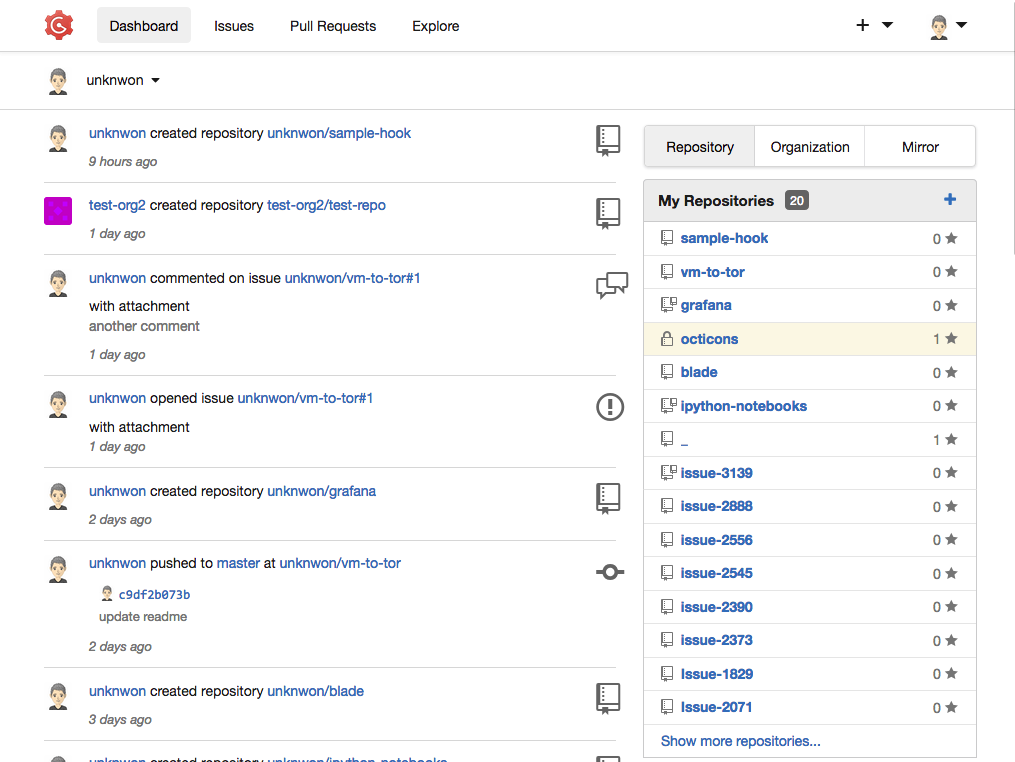
11. GitPrep (Self-hosted)
A GitHub clone written in Perl.
Features:
- GitHub clone
- Portable
- Issue tracker
- CGI support
- Built-in web server
- SSL Support
- Public key auth support
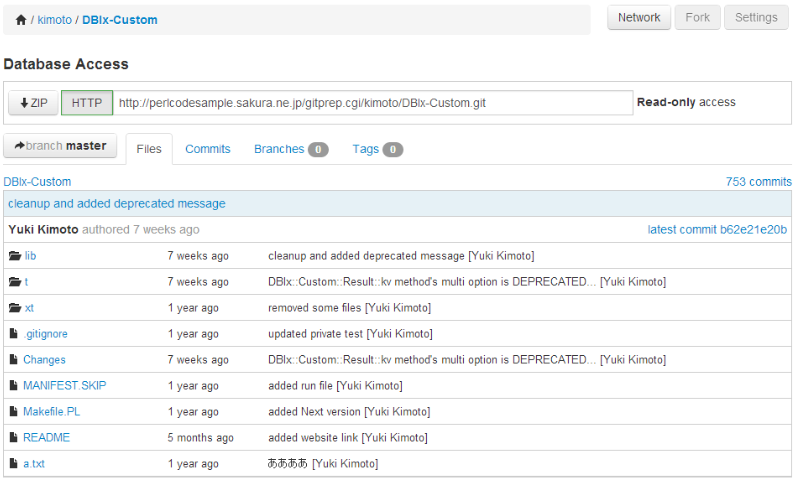
12. Allura (Self-hosted)
A product from Apache. Sourceforge runs on Allura.
Features:
- Code repo
- Supports Git, Mercurial, SVN
- Issue tracker
- Discussion forums
- Wiki
- Mailing lists
Do let us know which alternative do you like the most?
Help us improve this content by editing this page on GitHub